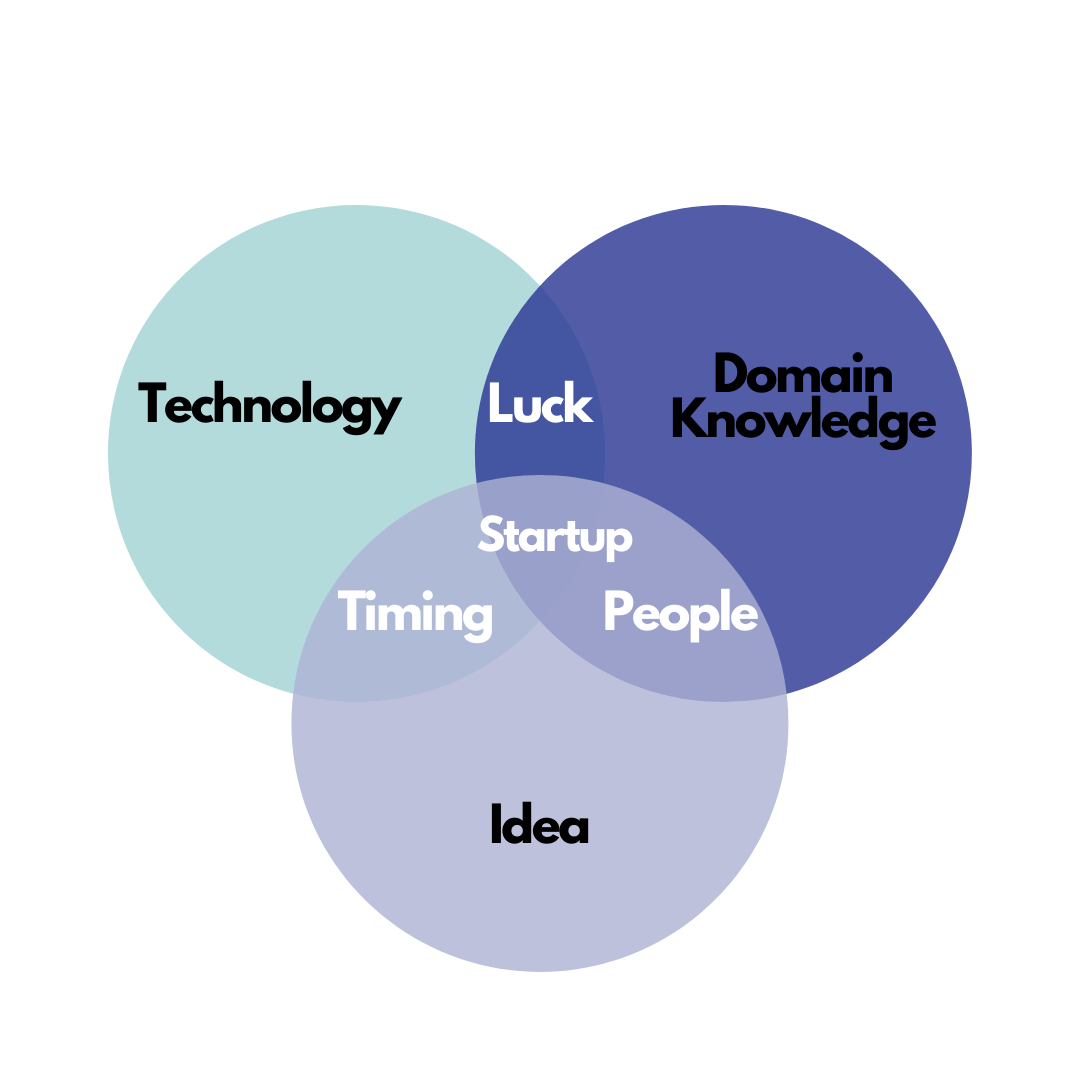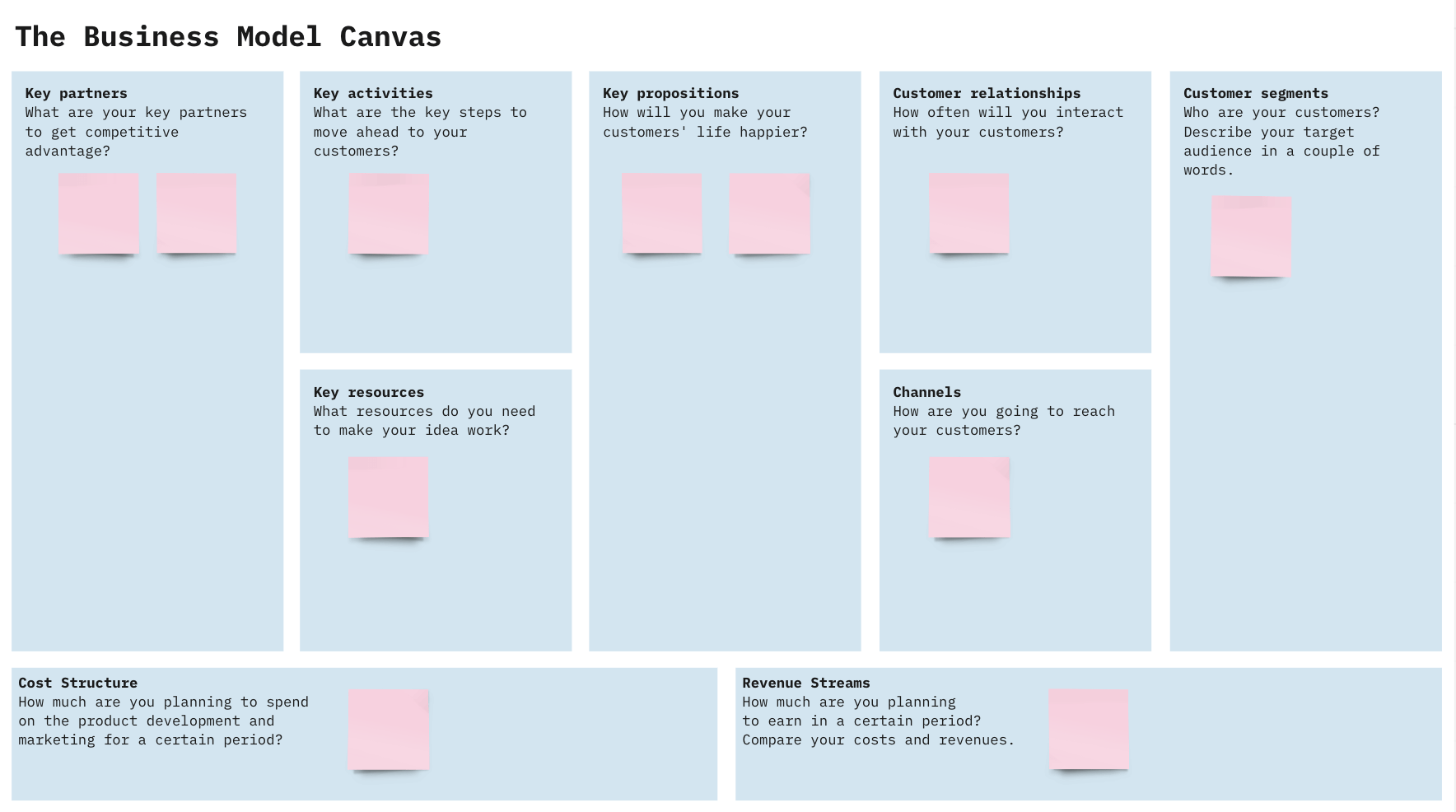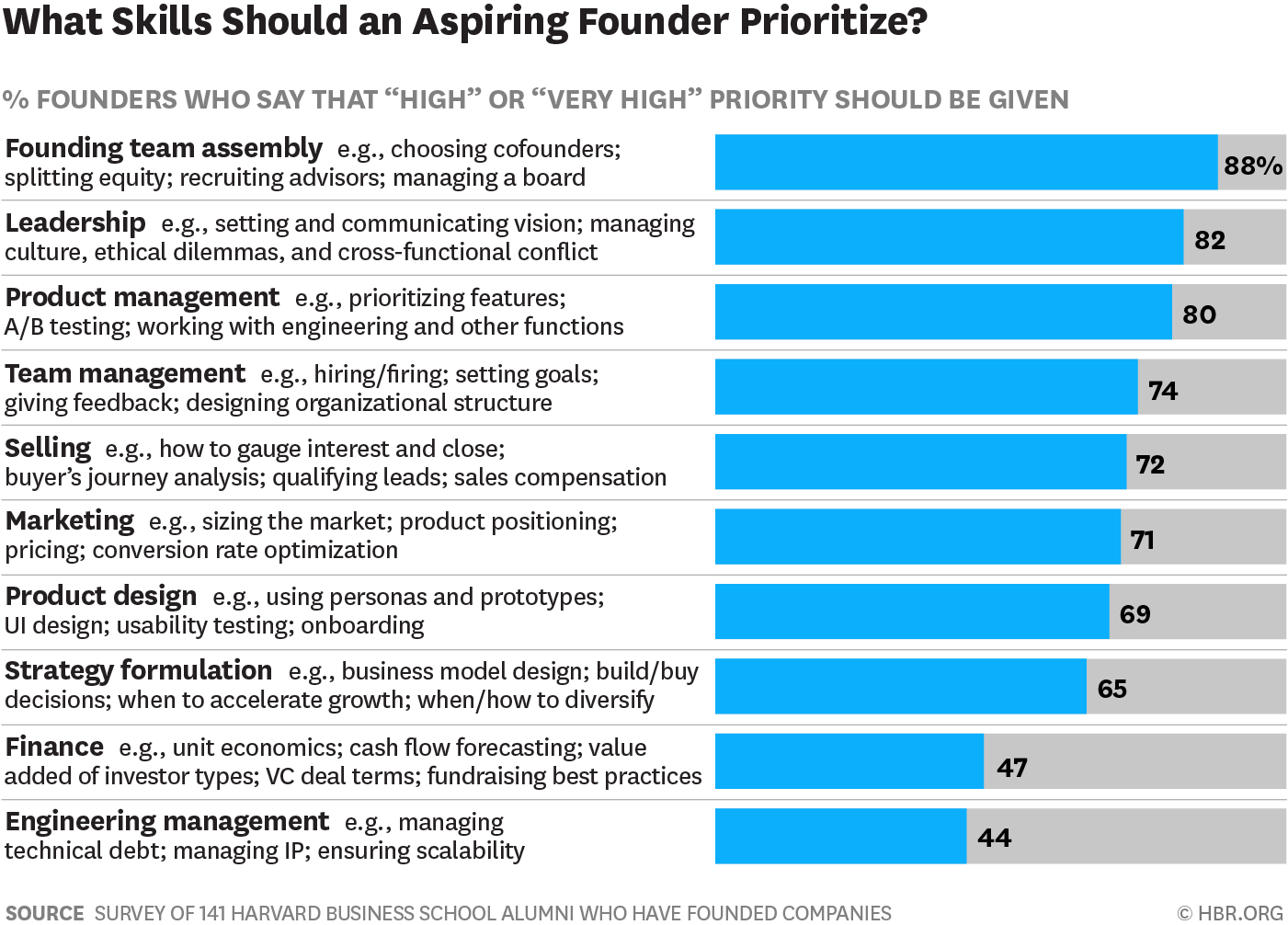Blog
How To Start A Tech Startup Company Without A Technical Background

Is It Possible to Establish a Tech Startup Without a Tech Background?
In today’s article, we take a look at what it means to build a tech startup especially if you are a non-technical founder. We examine the steps taken when building an MVP, from validating your idea, seeking customer feedback, iterative decision-making, building out your teams and more.
Steve Jobs, one of the absolute tech talents and greatest minds of our time, business magnate, and one of the Apple multinational company co-founders didn’t know how to code.
He dropped out of college, and education seemed meaningless to him.
As Steve Wozniak, Jobs’ technical partner, and co-founder at Apple, shared in one of his interviews, Steve (Jobs) didn’t ever code. He wasn’t an engineer and he didn’t do any original design.
Lack of engineering skills and coding knowledge, however, didn’t interrupt Jobs’ road to success. And now, more than 10 years after he deceased, Steve Jobs is still an icon in the tech world. It takes immeasurable skills and unbelievable dedication to outmatch Jobs’ contribution.
Isn’t it curious that such a tech giant wasn’t tech-savvy?
Isn’t it curious that hundreds and thousands of tech startup founders have no clue how to code?
And is it really possible to establish a successful tech startup with zero tech awareness nowadays?
Here’s a quick answer: yes, it is.
For a more circumstantial answer, dive into this article. Here, I will cover several significant topics, including
- Main steps to prepare for a successful startup launch
- Ways to find a technical co-founder (and do you really need one?)
- Stages of MVP development
- Must-have skills you should master
Let’s start.
Scale your development and software with confidence!
Master strategy, roadmap, and code execution and start to ship more on each sprint.
Building a tech startup: what to begin with?
The best thing you can do at the very beginning of your startup journey is to act fast.
Timing is a great deal, and launching a product right when users need it most may accelerate your success and take you to the desired business goals,
But even though it is crucial to act rapidly and start instantly, thorough preparation is required.
To save your time and help you define the priorities, I suggest paying particular time and attention to four main components of the preparation process:
Define a million-dollars-worth idea
At least it should sound like a million-dollar-worth idea. You will have an opportunity to prove its value a bit later.
There’s a chance you already have an awesome concept on your mind and now, you’re looking for ways to make it live. If you already have a basic plan and a vision of a product to build, you can skip this section and proceed with the next one describing how to add the significant details to your vision.
But if you haven’t come up with a striking idea yet, here are several ways you can generate it:
- Analyze your industry
Markets are full of opportunities.
No matter what market or industry you are familiar with, let it be retail in South Africa, on-demand delivery in the US, or education in Australia, you may already know about products and solutions available there.
At the same time, you can analyze the pros and cons, strengths and weaknesses of those solutions.
Can you improve existing products with your unique idea?
Can you simplify users’ lives with a more demand-oriented solution?
Open an app you find inspiring on the App Store or Play Market. Check users’ reviews. Can you identify an obvious gap in their needs? Can you see how to address it?
Put your thoughts on a sheet of paper and let your little grey cells create something awesome.
- Talk to entrepreneurs
Another great way to come up with a startup idea is to talk to local entrepreneurs.
What sort of products do they use to streamline their business operations? Are they completely satisfied with these products?
The entrepreneurs’ survey would be useful not only for idea generation. This is also a way to meet a potential business partner or your very first beta users.
As you discover a real need for a particular functionality and start implementing it in a real app, you can suggest a prototype to potentially interested entrepreneurs and ask about their impressions. This is a tried and tested way not only to come up with an idea but also to improve and polish it to win loyalty.
- Brainstorm
And never stop brainstorming.
Search for inspiration in casual things; investigate the imperfections of apps you use daily.
Your great idea may hide behind a tiny detail or a simple feature added to existing software.
As Austin Cleon says, steal like an artist. Boost your creativity with ordinary things and imagine what product users really need at the moment.
Startup success is a blend of a robust idea, deep domain knowledge, and technology background. While you may feel a lack of tech expertise, it is significant to invest your time and effort in idea brainstorming and domain studying. As you define your idea and target a particular market, it gets easier for you to proceed with the next steps on your way to a successful startup.
Add the details to your plan
As you’ve generated a general vision of what you would like to build, it is essential to add missing details to the picture and create initial documentation.
To take the first step towards project documentation development, consider filling out the business model canvas. Miro provides us with a simple and clear template you may use for your project. In the canvas, add the following details:
- Partners you are going to work with (I will highlight the question of tech partners in the following section);
- Activities you need to attract potential customers with your product;
- Propositions, or features that will make users’ lives better;
- Customer segment, or target users;
- Resources you need to make your business work;
- Marketing channels;
- Cost you may need;
- And revenue streams.
Why exactly do you need this canvas?
- First of all, it will help you notice the missing elements of your business plan;
- It will help you generate more details and understand your goals and palms more accurately;
- It will help you set correct expectations;
- It will help you explain your idea to potential partners and investors;
- It will help you keep track of idea growth and development.
Pro tip: The more you know about software project documentation, the easier for you as a business founder it will be to organize your daily routine, set priorities, and fulfill business missions. Recently, I’ve talked about the importance of features prioritization and product roadmap with Rakesh Nerlikar, the founder of Prodify SaaS solution. Listen to the Product Stories podcast episode to increase your awareness about how project documentation works and why it is significant for every startup.
Learn business and technology basics
Speaking of podcasts, I believe they have to become a part of your life and remain an irreplaceable component of your weekly routine as long as you want to build and improve your software startup.
Not only podcasts but also books, blogs, articles, and every type of content related to the startup and IT worlds should build a ground of your daily studying and enhance your knowledge.
If you are a product owner, a software designer, or a specialist who is somehow involved in the IT world or has any experience in the non-tech startup domain, you may already know which books or resources may provide you with crucial knowledge.
These are some of the resources I’d recommend taking a look at.
Books |
Podcasts |
Websites |
How to upgrade your management skills?
- Get acquainted with Project Management Body of Knowledge (PMBOK). This is a brilliant in-depth guide in project management valuable for any industry.
- Check the available online courses on project management. For example, Managing Complex Technical Projects by MIT, or Project Management Foundations by Google
- Use Y Combinator Startup Library. This is the source of billions of dollars worth of insights, tips, and success stories for an ambitious future startup founder.
- Read Agile Manifesto and consider becoming a certified Scrum master to set up the startup development process and manage your team most efficiently and professionally.
What about tech skills?
At the beginning of this article, I told you you don’t need to be a code geek to launch a tech startup.
But still, you need to have a basic understanding and know answers to significant questions, like:
- How does the software work?
- What tools and technologies one may need to launch an app?
- What is the software development lifecycle?
- What is a native app, and how does it differ from a web or cross-browser app?
- What is the difference between the app’s front-end and back-end?
If you take a look at the aforementioned resources, you can get answers to some of the questions and build the ground for further tech knowledge enhancement.
On Quora, Ron Rule shares a valuable thought with the readers:
There isn't a course in the world you could take that would give you enough working knowledge to review the quality of your workers' code.Ron Rule CEO of As Seen On TV and a Quora contributor
And every advertisement claiming to teach you programming in Python or JavaScript in one week is mostly a scam.
If you want to learn programming, you need to invest much time and effort in it.
If you want to launch a startup, you need someone to delegate coding while you are busy working on marketing, sales, finance, and other significant business operations.
Validate your idea
Anthony Joiner, the founder of Blooksy SaaS platform for writers and publishers, needed zero lines of code to validate his idea. Anthony simply created a Facebook group where he helped writers with publishing. As the community grew, and Facebook functionality wasn’t enough to cater to customers’ needs, Anthony decided to launch a tailored SaaS platform.
At this stage, focus on making sure your idea has a chance to survive.
- Are there any users willing to try your product?
- Do these users have an alternative to your product at the moment?
A Facebook or Instagram profile or simple landing page may help you measure users’ interest while a visual prototype built on a no-code platform will shed light on how nice and convenient your product will be.
What tools can you use to build an initial no-code prototype of your product? I can recommend these:
Once you have a prototype ready, you can move forward with idea implementation.
But wait, how can you do that? And do you need a tech person by your side to launch a tech startup?
Let’s make it clear.
Do you need a technical co-founder to launch a technical startup?
You don’t need a tech co-founder per se; still, you need someone to take care of the tech side of the product while you are busy with business growth.
Who can you delegate tech tasks to?
If you would like to be the only decision-maker at your startup, consider these two options to delegate technical founders’ responsibility:
- CTO as a service
Some software companies offer CTO as a service. It means that you can hire a part-time proficient technical specialist, able to advise you on any tech-related task, decision, or issue.
This may be an attractive option as typically, you don’t need a full-time chief technology officer. Opting for CTO as a service can save you cost; at the same time, you need to hire the right one.
At Trustshoring we offer Fractional CTO/CPO services that allow you to get the skilled and experienced product advisory that you need at a fraction of the cost.
- Remote team with a dedicated tech leader
To avoid hiring challenges and save time, you can look for entire development teams headed by skilled tech leaders. In this case, a tech leader will both advise you on specific decisions and supervise developers.
How to find a tech co-founder?
If you would like to build a long-term partnership with a tech co-founder, there are several ways you can meet them:
- Word of mouth
Do you know anyone who has a story similar to yours? Do you know a non-tech founder who has launched a software startup?
Try talking to them and describe your situation. Define who exactly you are looking for, what hard and soft skills are preferable, and find out if people you know have someone to recommend you.
Word of mouth works extremely well! Just describe your expectations and talk to the right people.
- Events and networking
Are you an early bird on local tech conferences? If you’re not a fan of IT events, it’s a perfect time to become one. No matter if it will be a Web Summit or a local IT community gathering, you have a chance to meet fantastic people there.
- Online channels
The LinkedIn professional network may be the perfect platform to meet your tech partner. Besides, YC has launched an entirely free platform for co-founders matching. As for other resources, visit Cofounders Lab or AngelList.
Note
A reliable software development team can take over tech co-founder responsibilities. A skilled tech team can suggest the most efficient development approach, tech stack, and tools for internal communication, productivity, and task management. Instead of looking for a tech co-founder, you can focus on searching for reliable development agencies and let them build your product from scratch, making all technology decisions themselves.
What’s next? Four main stages of the product development process
Once you find your perfect development partner or a tech co-founder, the minimum viable product development starts.
1. Describe your idea and agree on the tech stack
I suggest starting cooperation by presenting an idea to your partner. Show them the simplest prototypes and ask what they think of them. Are there any ways to improve the vision and make your idea even stronger?
Discuss the stack of technologies needed to turn your idea into a software app. At the initial stages of your startup growth, try to avoid sophisticated frameworks and expensive cloud solutions. Remember that it is still essential to make sure that users will download, use, and recommend your app.
While your budget is limited, before you raise initial funds, simple tools may be enough.
Use the information provided by your tech partner and finish project documentation before the development process begins.
2. Hire software development team
When you have your tech co-founder on board, start hiring the development team. Typically, you may need four to six specialists to launch a simple MVP:
- UI/UX designer
- 1-2 front-end developers
- 1-2 back-end developers
- Software test engineer
The size of the team may depend on your budget, the size of the project, the scope of work, etc.
Your tech co-founder may be responsible for CV reviews and tech interviews.
3. Start working on an MVP
When your team is composed, provide them with project documentation and set clear expectations. Think about your participation in the MVP development process. Would you like to find out about updates daily? Or weekly meetings be enough? Or would you like to join status meetings at the end of each sprint?
Share project responsibilities with the tech founder. While your development team and a tech co-founder work on the tech side of the project, you should dedicate your effort to effective marketing and product promotion. The more people will know about your app, the more they will try it. Make your effort pay off with a powerful marketing and sales campaign.
4. Release the first version and collect feedback
MVP time to market may take around six months or more. Your development team will provide you with more accurate time estimates once they get detailed documentation.
Give a working app into users’ hands and ask what they think of it. Take into account every opinion and allow your beta testers to contribute to your app’s brilliance.
Analyze users’ preferences, wishes, and complaints, and make edits to your product roadmap accordingly.
Must have skills for startup founders
As you feel a lack of tech skills, what other skills should you pay attention to? What skills should you acquire and develop?
HBR surveyed Harvard Business School alumni to identify the most essential founder’s skills.
In conclusion
How to start a SaaS startup? Just clarify your vision and goals and start acting.
- Generate a viable idea and match it with users demand;
- Decide on features, specifics, and unique opportunities your app will provide;
- Deepen your business knowledge and gain an understanding of key technology concepts;
- Make sure users look forward to trying your app.
There are many ways to delegate coding and technology decisions to technically proficient people.
Carlos Hidalgo shared an amazing piece of advice every non-tech startup founder should keep in mind:
Do not give up on your concept due to a lack of technical skills.Carlos Hidalgo Life Design Coach; TEDx & International Keynote Speaker
You can reach your business goals even with zero coding experience, just like Steve Jobs, Brian Chesky (Airbnb co-founder), Evan Spiegel (CEO at Snapchat), or any other business founder did.
Ready to build a saas company? Get in touch with us and we’ll help guide your product decisions, and match you with the right development team and the tech leadership you need to be successful.
Read more


Case study:
Blooksy
Learn how Blooksy moved from concept and raised funding!

How Much Does It Cost to Build Software or an App?

5 Things Founders Learned Going From Startup to Growth-Stage Business

Bootstrapping a SaaS: The Strategies Every Founder Can Learn

Software Migration: Moving From Desktop to SaaS
Create a free plan for growth
Speak to Victor and walk out with a free assessment of your current development setup, and a roadmap to build an efficient, scalable development team and product.
“Victor has been great. Very responsive and understanding and really knows his stuff. He can go the extra mile by tapping into his prior experiences to help your company out. Really enjoyed working with him.”
Founder of Agency360

Victor Purolnik
Trustshoring Founder
Author, speaker, and podcast host with 10 years of experience building and managing remote product teams. Graduated in computer science and engineering management. Has helped over 300 startups and scaleups launch, raise, scale, and exit.


 Ron Rule
Ron Rule 
 Carlos Hidalgo
Carlos Hidalgo